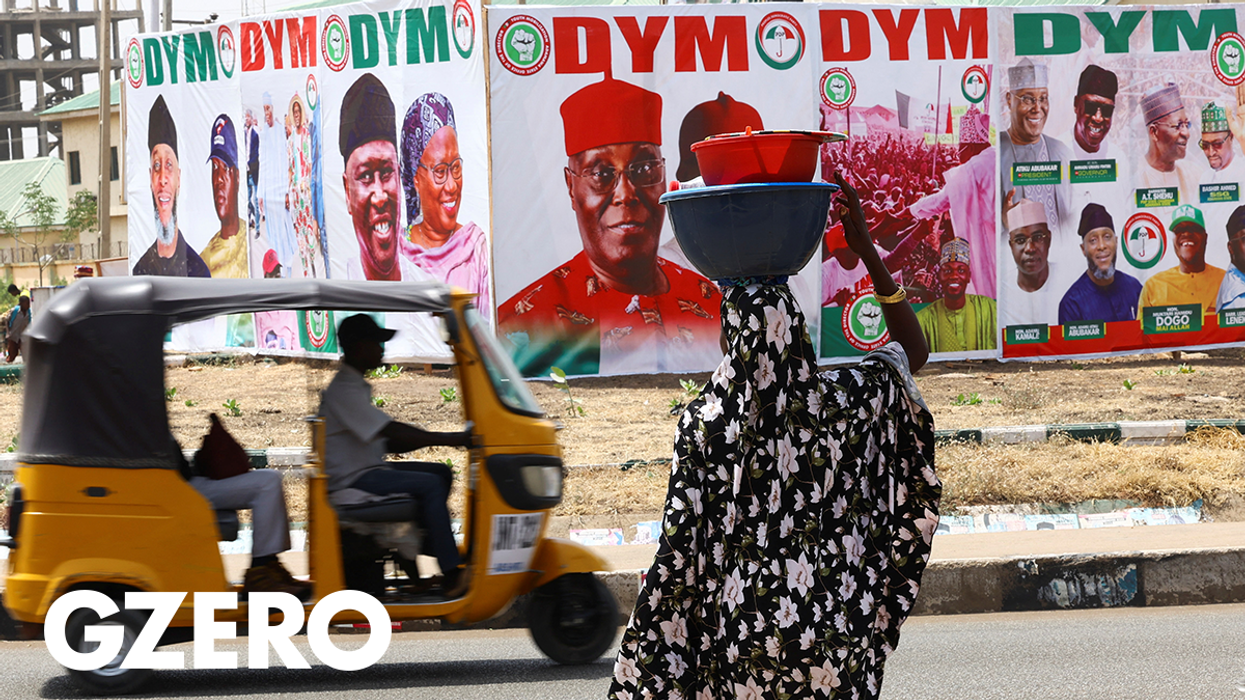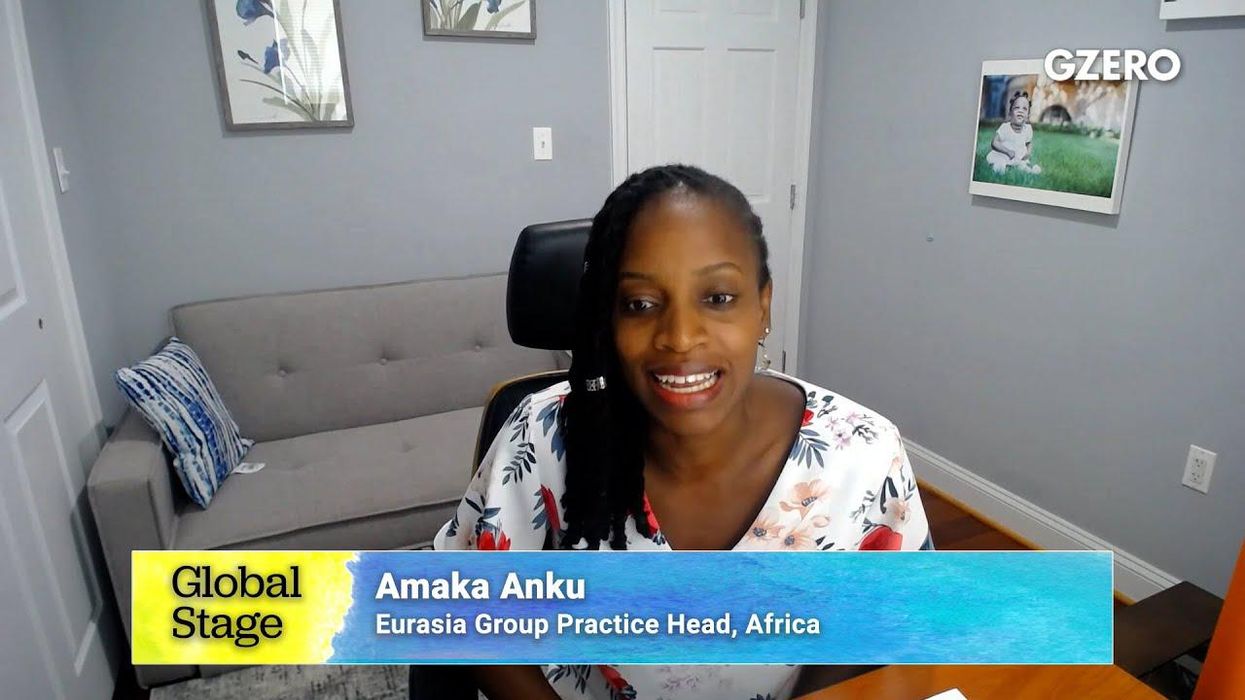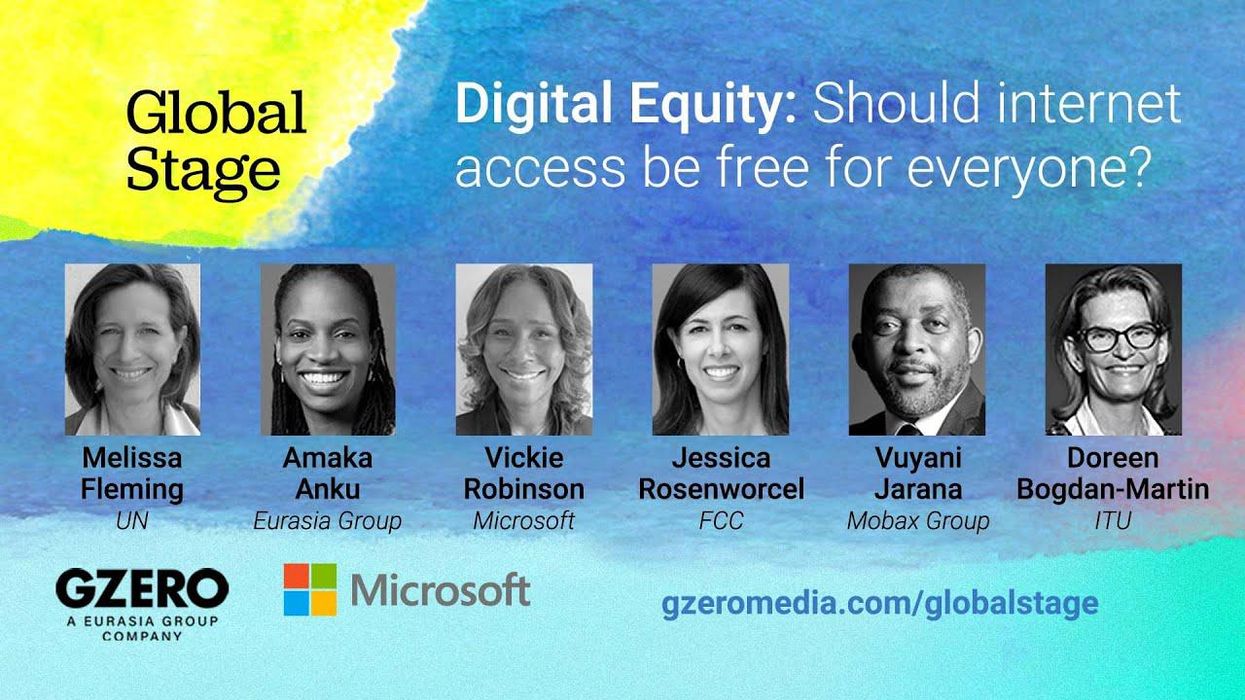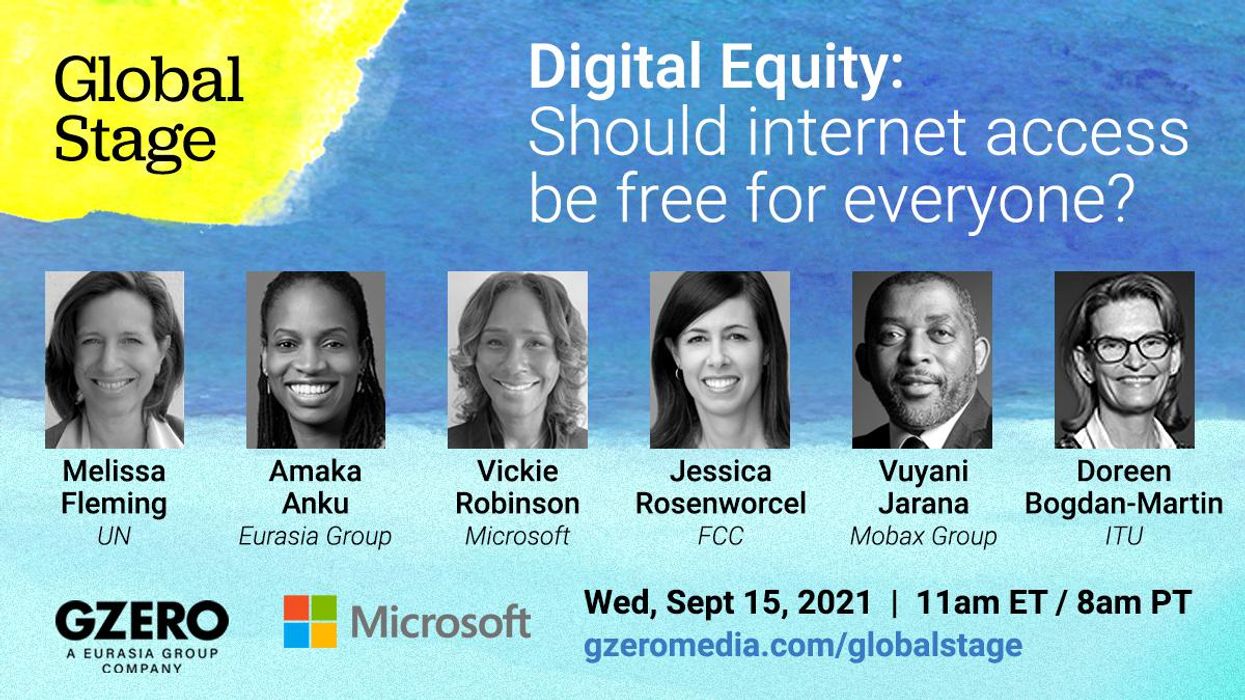Podcasts
Podcast: Nigeria’s presidential election is a critical moment for Africa
Listen: On February 25, Africa’s most populous nation heads to the polls to vote for a new president in what is shaping up to be a hotly contested race. To help you better understand the Nigerian election and what’s at stake, GZERO is handing over this podcast feed today to Amaka Anku, Head of Eurasia Group’s Africa practice. She brings us a conversation from the The Center for Global Development podcast moderated by CGD’s Senior Policy Fellow Gyude Moore.
Feb 22, 2023




